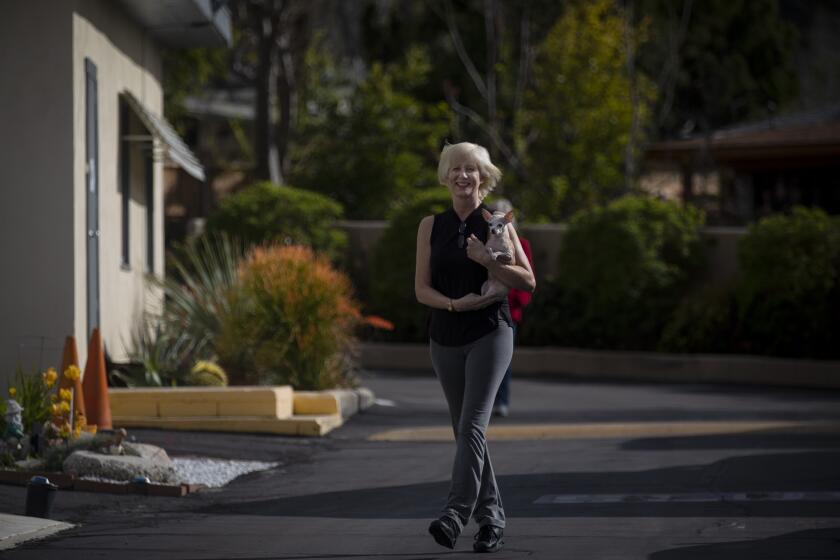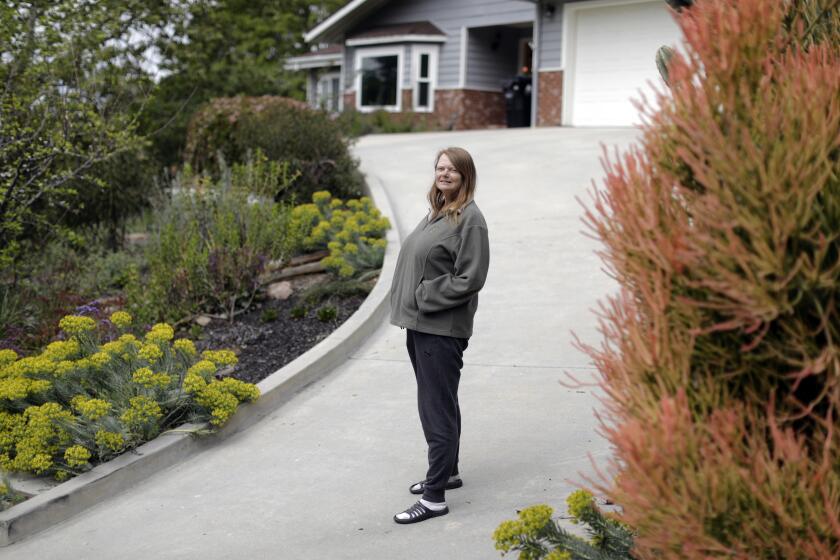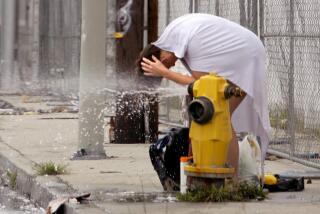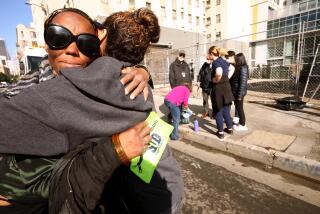“Is anybody around here sick?” Street doctor races to get ahead of coronavirus
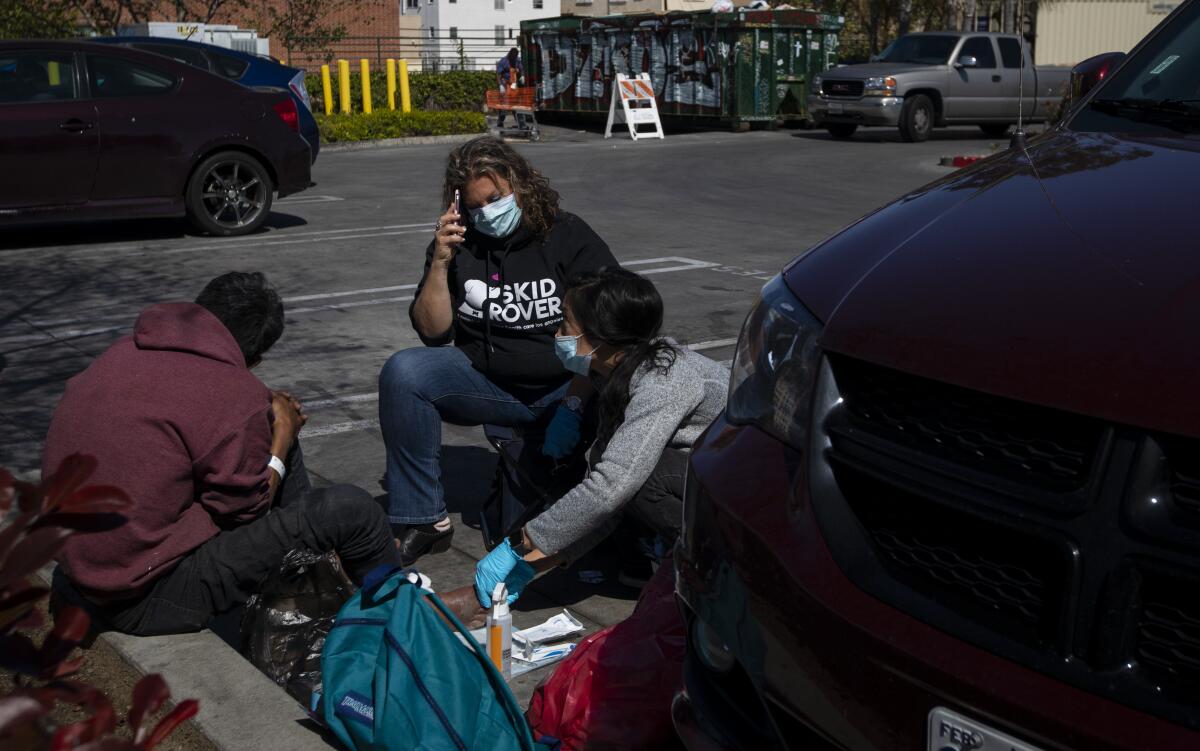
- Share via
It was late morning when Dr. Susan Partovi and nurse practitioner Jen King set out from downtown Los Angeles on a mission — to track down some of their homeless patients, check on their welfare and warn them about the dangers of the coronavirus.
With so many other daily challenges homeless people have to deal with, Partovi said, the seriousness of an invisible threat hasn’t sunk in yet with some of those living in tents. The most vulnerable, she said, including those with severe physical and mental illness, need more than ever to be housed for their own safety and that of others.
“I don’t think they fully grasp it,” said Partovi, who works for Homeless Health Care Los Angeles. “It’s not real to some of them.”
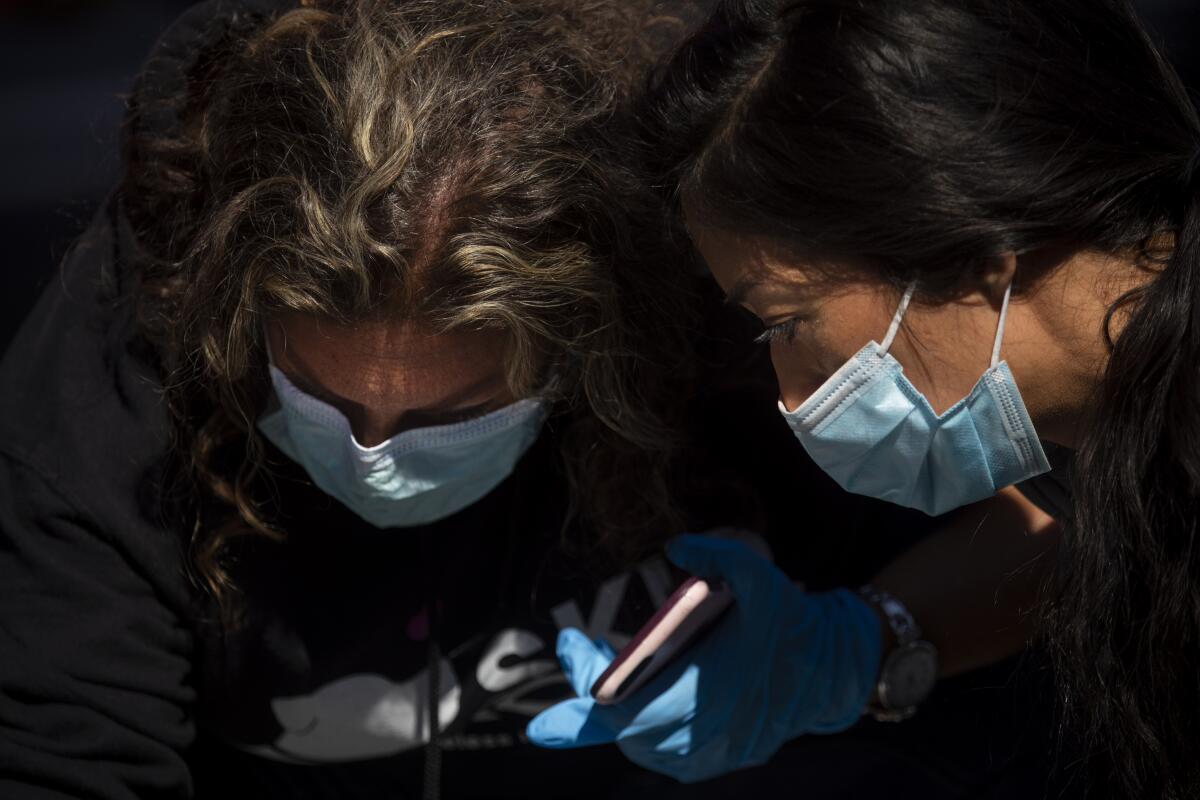
What is real is that while the virus has dramatically altered the daily routines of most people, locking us up in the comfort of our own homes, little has changed for those without a roof over their heads.
At 5th and San Pedro, in the heart of skid row, tents and people — in proximity — still lined the streets. As I headed west, through normally crowded downtown Los Angeles, it was as if there’d been an evacuation order and everyone but the destitute got the memo. No traffic. No busy office workers running errands. Just an endless array of misery.
At 5th and Figueroa, a distressed man naked from the waist down wandered into the middle of the intersection, and two police officers were trying to reel him back onto the sidewalk. West of downtown, with no vehicles blocking the view, tarps and tents were even more visible than usual.
Partovi and King’s first goal was to find a 56-year-old man King had been caring for over the last several weeks. He’s diabetic and had been hospitalized for foot wounds, then released.
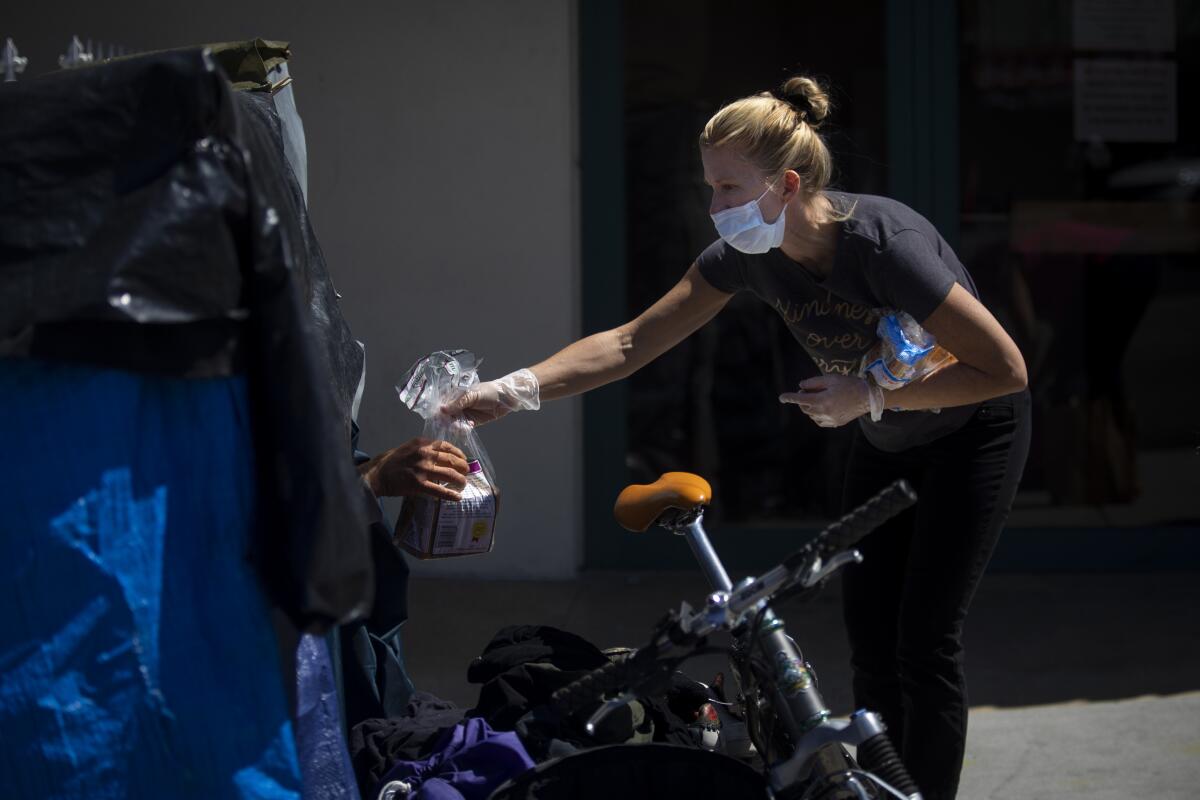
“Foot ulcers are so very common in diabetics. They can get infected and if you don’t treat that, it can lead to an amputation,” Partovi said. “We had him admitted and he got discharged a couple of days ago.”
I asked if it was wise to release him from the hospital without a home to return to.
“It’s a double-edged sword,” Partovi said. “They might be trying to keep people out of the hospital so they don’t get COVID-19, but they should’ve confirmed a place for him to go to. … We’re trying to find recuperative care for him.”
With coronavirus, we’re charging into a new frontier without a map
On Wilshire Boulevard, across the street from The Home Depot, Partovi approached a row of tents and began calling the patient’s name.
“Que pasa? Todo esta bien?” Partovi asked, moving among the blue tarps to see if everyone was OK and if anyone had seen her patient.
Partovi was a teenager at Santa Monica High years ago when her church group made pilgrimages to Tijuana to assist the poor. She still vividly recalls a housing development at a landfill and the physician’s assistant who ministered to the sick and injured on the trips. That was when she knew, she says, that her life’s mission would be poverty medicine.
The patient finally limped out of a tent with two bandaged feet, but none of the symptoms of coronavirus. Partovi and King asked him some questions about his recovery and escorted him across the street to their van in the Home Depot parking lot.
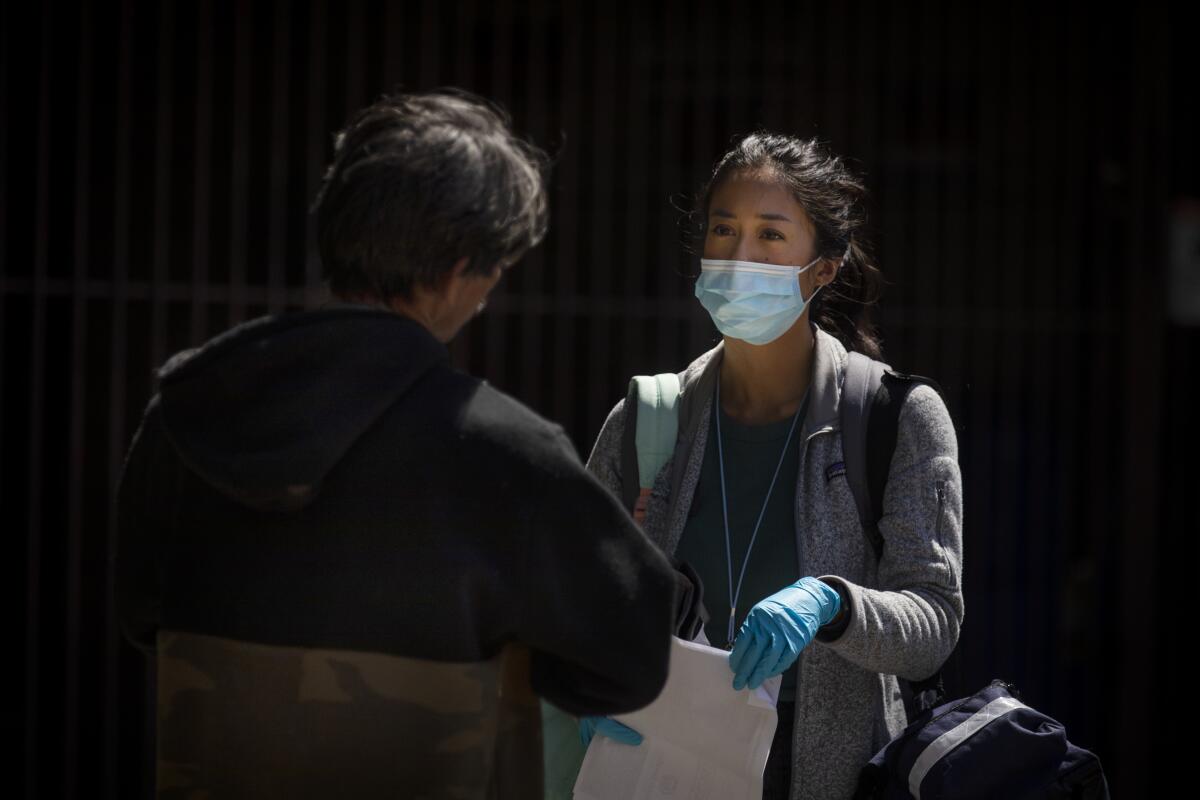
Once there, they turned the parking space next to the van into an outdoor clinic. I watched as Partovi grabbed her medical bag, which also serves as a handy stool for a street doctor. She took a seat next to King and they removed the patient’s bandages to have a look.
“This actually looks pretty good,” Partovi said as she examined the man’s right foot.
Partovi peered into a deep gash on the man’s instep and asked King for a suture remover. The doctor used the tweezer-like tool to remove dead tissue and clean up the wound before rewrapping it. Then she checked the other foot, which also had some lacerations that were healing.
It was a simple medical procedure, but the humanity on display hit me in waves as I watched in admiration. Two selfless front-liners were taking a risk in the middle of the pandemic to help someone in need, here in such an unlikely setting. They wore masks, but social distancing was impossible.
This work is nothing new for Partovi, who has practiced street medicine for years. She signed up quickly for earthquake disaster relief in Haiti 10 years ago, where she said it was not uncommon for advanced medical procedures such as amputations to be performed in makeshift surgery centers. One day, she said, doctors operated under a mango tree with a goat walking by.
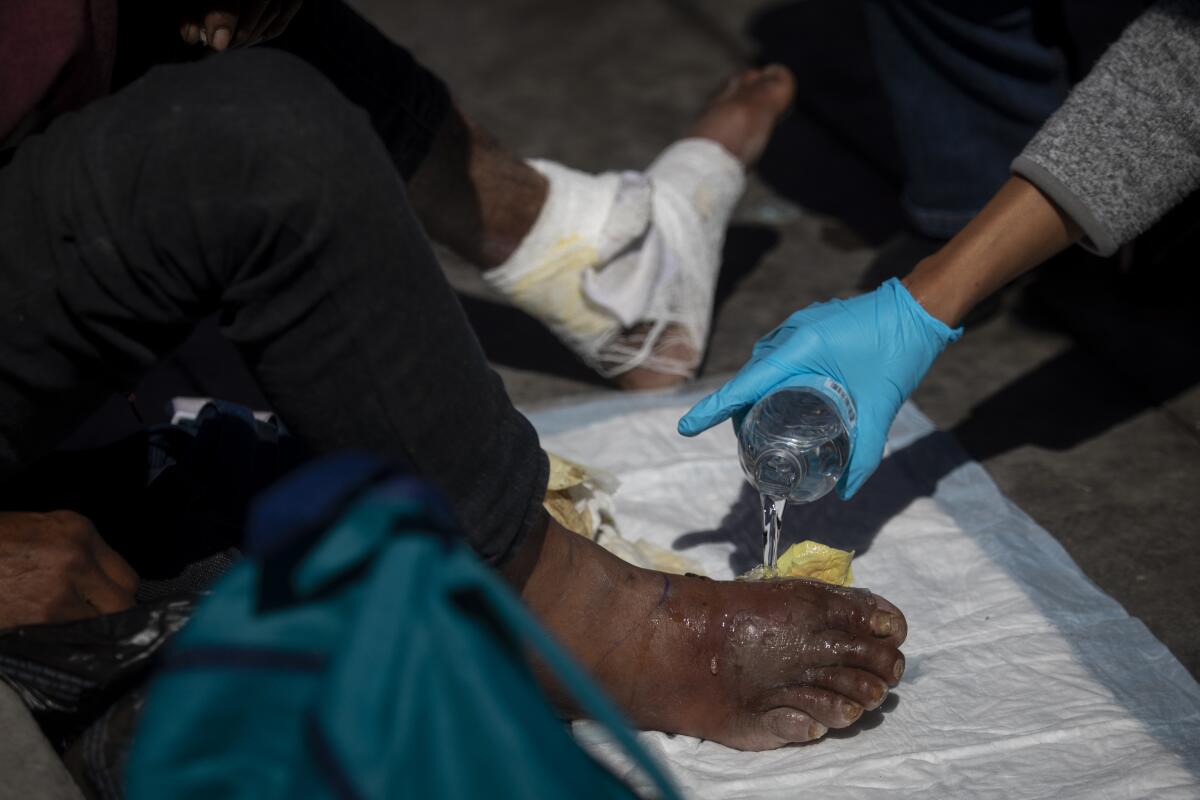
“You make do,” she says.
King, who moved west from Boston late last year after becoming a nurse practitioner, said she fell in love with street medicine because of the singular purpose and camaraderie of the people who do this work. She particularly enjoys the satisfaction of building relationships with people in need, earning their trust and knowing their gratitude.
King said friends and family worry about her safety, especially now, when there’s more to consider than the usual staph infections and communicable diseases.
“If the person I’m treating has a cough or fever, or if I have any suspicion they have coronavirus, I have … a gown and face shield and mask and gloves to put on, and that’s what I do,” King said. “But I feel like when you sign up for this job, you sign up to take certain risks and you have to treat people as safely as you can.”
Partovi and King returned the patient to his tent and told him they would be back later if they could make an arrangement for him to move temporarily into a hotel. There, King would continue to make daily visits to treat his wound and make sure he had enough insulin and antibiotics.
When the hospital postponed her surgery because of coronavirus, she worried the cancer would spread
Next on their list of regular patients was a homeless mentally ill man who has been living in Echo Park. Partovi and King looked for him at the McDonald’s on Glendale Boulevard, where he can often be found, but there was no sign of him.
We came upon another homeless man pushing a shopping cart. He said he was feeling fine, and knew of the patient Partovi was looking for. Try the Rite-Aid, he said, the Vons and Triple Beam Pizza on Sunset Boulevard.
They tried all those locations with no luck, then traveled to Koreatown to check on an encampment they were familiar with outside Founder’s Church. There, a dozen tents lined the street, and Partovi and King were joined by a registered nurse named Heidi Roth, who had a day off from her home healthcare job and asked Partovi if she could help out as a volunteer.
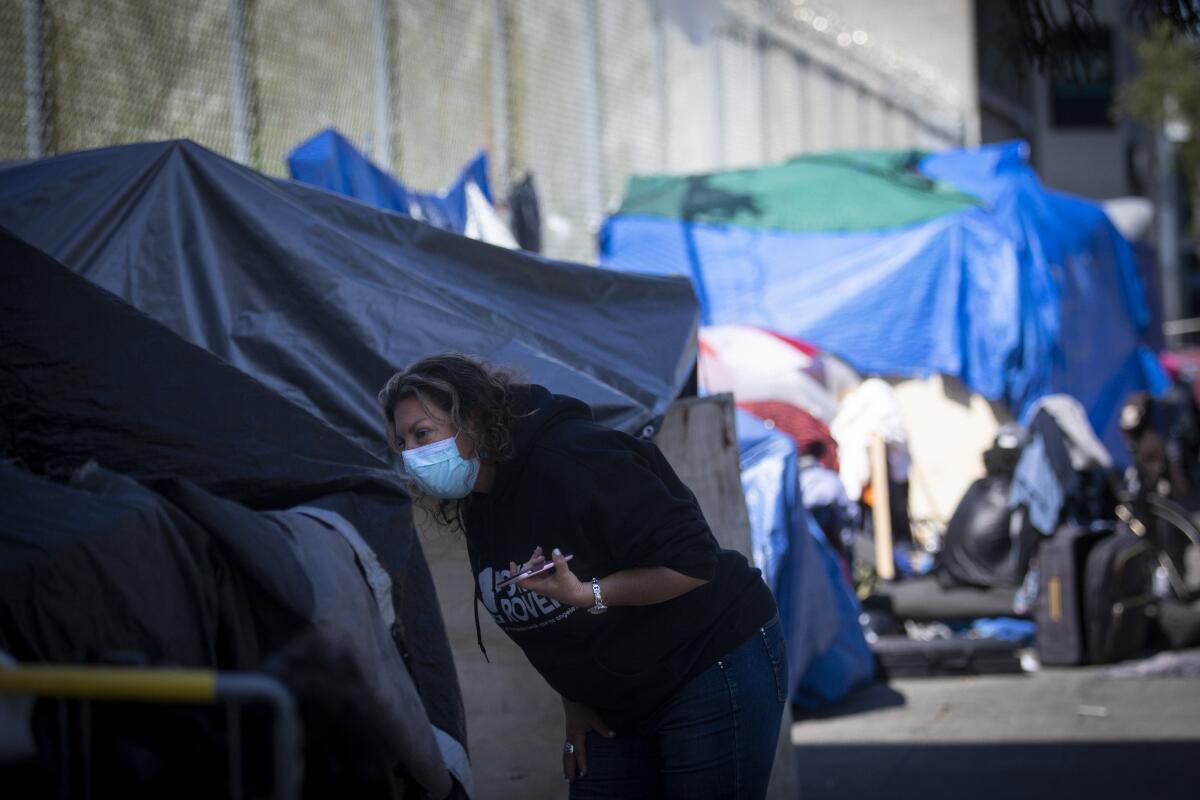
The three of them went tent by tent, offering bottled water, snacks and hygiene supplies.
“We’re really blessed to have our homes to stay in with our families,” Roth said. “But so many people have nobody, and if we as providers can’t help them, who will?”
Partovi called out to those inside tents.
“Is anyone around here sick?” she asked.
People emerged and nobody reported any coronavirus symptoms. Partovi said she hasn’t found a case yet in any homeless encampment, but given the underlying medical conditions so many people have, the virus could spread quickly and she’s trying to get ahead of it. She explained to the encampment dwellers what symptoms to look out for. Fever, cough, shortness of breath.
“Do you have a mask?” she asked, passing one to a woman who was without.
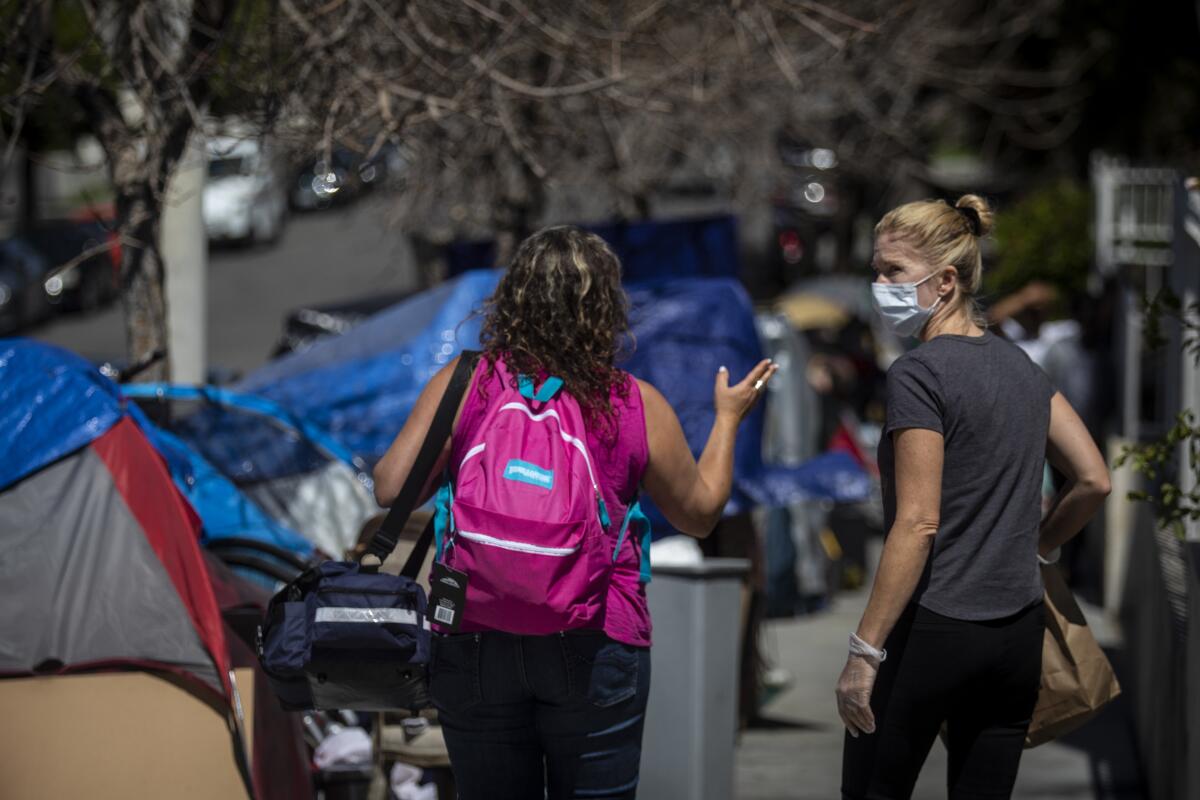
“If someone is really sick and having difficulty breathing, call 911,” Partovi said. “If you’re sick, you should stay inside your tent and not come out on the street.”
She asked two men if they were staying in the same tent, and, if so, recommended they keep as much distance between them as possible.
One man asked if anyone could deliver a Porta Potty because residents of this encampment couldn’t always get into the nearby gas station bathroom.
“Everybody’s worried,” a homeless man named Patrick told me, “but if the virus comes here, what can we do about it?
“We don’t have a lot of options,” said his friend Jhon.
Partovi asked me several times to remind the public and public officials reading this column that there’s always a shortage of resources, but the problem is all the more urgent during the pandemic. Obviously there’s a need for more temporary housing solutions for the most vulnerable populations, she said, including those with severe mental illness, who might not be aware of the current threat.
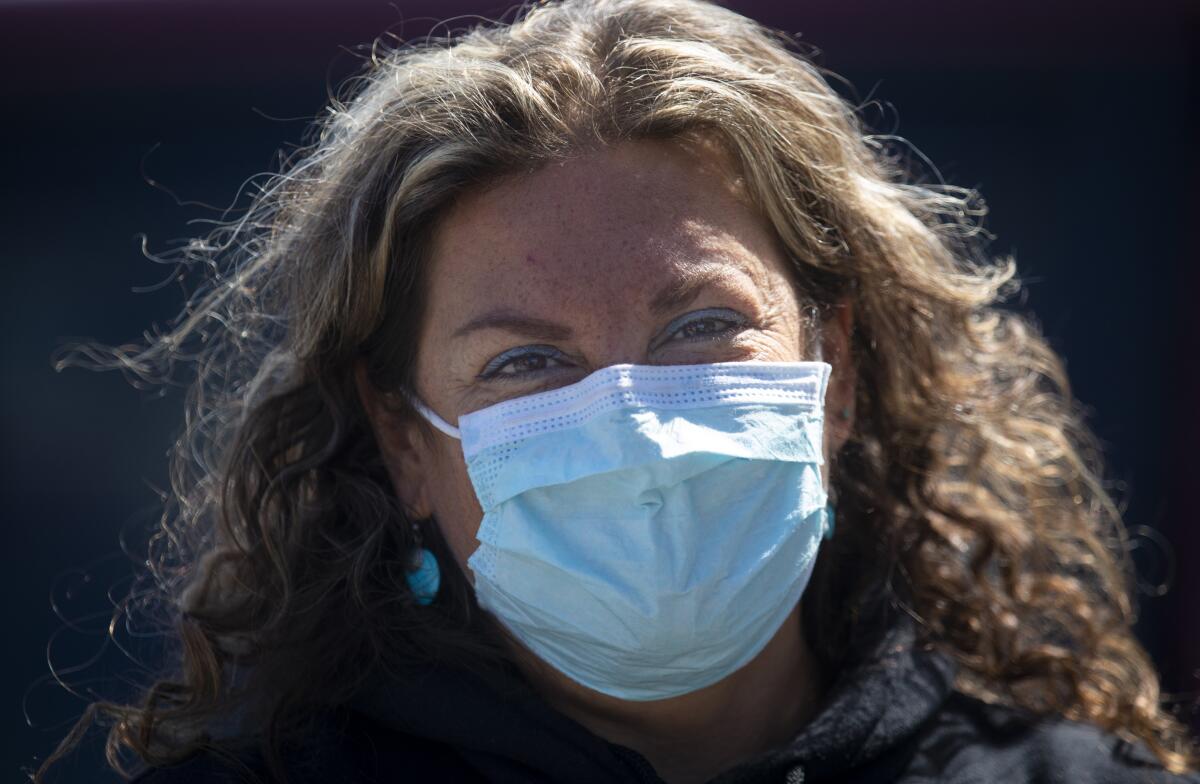
“We need phones,” Partovi said, so people can call for help in an emergency. Also hand sanitizer, tents, dumpsters and syringe bins. For information on how to help, check the Homeless Health Care Los Angeles website at hhcla.org.
At last count, nearly 60,000 people in L.A. County were homeless, and the pandemic‘s crippling effect on the economy could well lead to greater numbers in the future.
The challenge is overwhelming, which makes the determined, faithful, compassionate work of the city’s angels all the more stirring.
By day’s end, Partovi’s team had arranged for the first patient of the day — the man with the wounds on his feet — to be moved into a hotel.
One down, tens of thousands to go.
More to Read
Sign up for Essential California
The most important California stories and recommendations in your inbox every morning.
You may occasionally receive promotional content from the Los Angeles Times.

